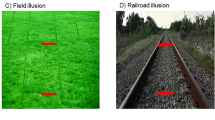Abstract
The concept of observation is central to science, but there are several ways that this can be understood. My aim is to criticize the account of observation presented by Alan Chalmers in What is This Thing Called Science? and provide an alternative based on direct realist approaches to perception. This issue, the nature and objectivity of perceptual knowledge, is one of the oldest in philosophy. Chalmers adopts a simple form of indirect realism, according to which the real objects of perception are our experiences or sensations. I believe this is a misleading way to understand observation in science. There are many important philosophical issues that relate to observation, such as: How are observations justified? and What do we observe?, however space does not permit extensive discussion of these topics.
Similar content being viewed by others
REFERENCES
Armstrong, D.M.: 1976, 'Immediate Perception', in Cohen (ed.), 23–35.
Berkeley, G.: 1954, Three Dialogues Between Hylas And Philonous, Bobbs-Merrill, New York.
Chalmers, A.: 1982, What Is This Thing Called Science?, University of Queensland Press, St Lucia.
Cohen, R.S. et al. (eds.): 1976, Essays in Memory of Imre Lakatos, Reidel, Dordrecht.
Dretske, F.: 1990, 'Seeing, Believing, and Knowing' in Osherson (ed.), 129–148.
Gibson, J.J.: 1968, The Senses Considered as Perceptual Systems, George Allen and Unwin, London.
Gibson, J.J.: 1967, 'New Reasons for Realism', Synthese 17, 162–72.
Gyr, J.W.: 1972, 'Is a Theory of Direct Visual Perception Adequate?', Psychological Bulletin 77(4), 246–61.
Osherson, D.N. et al. (eds.): 1990, Visual Cognition and Action: An Invitation to Cognitive Science, MIT Press, Cambridge.
Ryle, G.: 1970, The Concept of Mind, Penguin Books, Harmondsworth.
Shapere, D.: 1982, 'The Concept of Observation in Science and Philosophy', Philosophy of Science 49, 485–525.
Sievers, K.H.: 1996, 'F.H. Bradley and the Correspondence Theory of Truth', Bradley Studies 2(2), 82–103.
Quine, W.V.O.: 1993, 'In Praise of Observation Sentences', Journal of Philosophy 90(3), 107–116.
Quine, W.V.O. and Ullian, J.S.: 1970, The Web of Belief, Random House, New York.
Warnock, G.J.: 1955, 'Seeing', Proceedings of the Aristotelian Society 55, 201–218.
Author information
Authors and Affiliations
Rights and permissions
About this article
Cite this article
Sievers, K. Toward a Direct Realist Account of Observation. Science & Education 8, 387–393 (1999). https://doi.org/10.1023/A:1008646124889
Issue Date:
DOI: https://doi.org/10.1023/A:1008646124889




